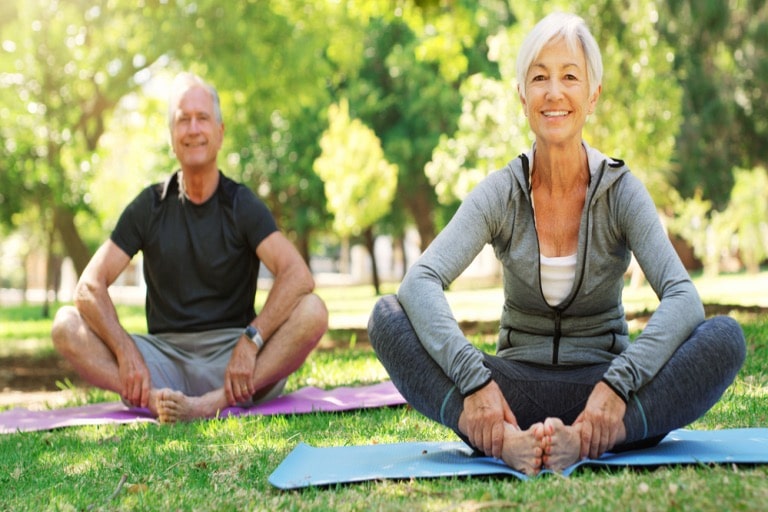As we grow older, maintaining our health and wellness becomes increasingly important. The concept of healthy aging is about embracing a lifestyle that supports physical, mental, and emotional well-being throughout the later years of life. Let’s provide practical tips to help you stay healthy and active as you age.
Physical Health
Regular Exercise
Staying physically active is crucial for healthy aging. Engaging in regular exercise helps maintain muscle strength, balance, and cardiovascular health. Activities such as walking, strength training, and yoga are particularly beneficial for seniors. The key is consistency and finding activities you enjoy so that exercise becomes a regular part of your routine.
Balanced Nutrition
A balanced diet is essential for maintaining health in older age. Focus on getting key nutrients such as calcium, vitamin D, and fiber. Eating a variety of fruits, vegetables, lean proteins, and whole grains helps ensure you get the necessary vitamins and minerals.
Additionally, practicing portion control can help manage weight and prevent chronic diseases. Check out the link for designing a healthy meal plan for elderly.
Regular Health Screenings
Regular health screenings and check-ups are vital for early detection and prevention of health issues. Common screenings for older adults include blood pressure checks, cholesterol tests, and cancer screenings. Staying on top of these appointments can catch potential problems early, making them easier to manage.
Adequate Hydration
Staying hydrated is often overlooked but is incredibly important for overall health. As we age, our sense of thirst diminishes, making it easier to become dehydrated. Aim to drink plenty of water throughout the day, and consider consuming hydrating foods like fruits and vegetables.
Mental Health
Cognitive Stimulation
Keeping your mind active is just as important as physical exercise. Engage in activities that challenge your brain, such as puzzles, reading, or learning new skills. Lifelong learning can help keep your cognitive functions sharp and delay the onset of dementia.
Emotional Well-being
Maintaining emotional well-being is crucial for a fulfilling life. Strong social connections and relationships can provide support and reduce feelings of loneliness. Strategies for managing stress and anxiety, such as mindfulness practices or talking to a therapist, can also be beneficial.
Lifestyle Choices
Avoiding Harmful Habits
Avoiding harmful habits like smoking and excessive alcohol consumption is key to healthy ageing. Smoking can lead to numerous health issues, including heart disease and cancer. If you smoke, seek help to quit. Similarly, moderate your alcohol intake to avoid negative health effects.
Sleep Hygiene
Quality sleep is essential for good health. Poor sleep can lead to a range of issues, from cognitive decline to weakened immunity. Improve your sleep hygiene by creating a restful environment, sticking to a regular sleep schedule, and avoiding caffeine and heavy meals before bed.
Staying Active and Engaged
Staying active and engaged in your community can significantly enhance your quality of life. Hobbies, volunteering, and social activities can provide a sense of purpose and fulfillment. Staying socially active helps keep your mind sharp and your spirits high.
Safety and Independence
Fall Prevention
Falls are a leading cause of injury among older adults, so taking steps to prevent them is crucial. Make your home safer by removing tripping hazards, installing grab bars, and ensuring adequate lighting. Regular vision and hearing checks can also help prevent falls.
Mobility Aids and Assistive Devices
Mobility aids and assistive devices can help maintain your independence. Items such as canes, walkers, and hearing aids can improve your quality of life. Choose and use these devices properly to ensure safety and effectiveness.
Investments You Can Make in Your Health as a Senior
Know that it’s never too late to make positive changes in your life. Indeed, when you’re a senior, you can make investments that benefit your health, giving you peace of mind and ensuring you can live a long and healthy life past retirement. So, if you have some money floating around and want to ensure that you’re spending it the right way, let’s take a look at some of the investments you can make for your health.
Health Insurance
First, let’s start with health insurance. The NHS has long waiting lists, and some specialized treatments aren’t available. When you’re getting older, you want to ensure you can get the healthcare you require. Know that private healthcare can open up more doors and make you feel more reassured.
But, to avoid the huge bills, you can invest in health insurance. A policy will help to cover your treatment, and this can be exactly what you need to live a long and healthy life. Shop around for policies, and you’ll discover that many are affordable despite being a senior.
Gym Classes
If you haven’t gone to the gym much during your life, you might be apprehensive about starting in your senior years. But you should know that there are plenty of other things you can do at the gym other than lifting weights and running on the treadmill.
There are also regular classes, which can be a fun way to keep fit as a senior. Indeed, you can get classes that are for beginners and that are tailored to your age. Keeping fit and active as you get older is important, and gym classes can bring an exciting new way to move and get your heart pumping.
Healthier Food
Don’t forget that one of the best ways to improve your health is to invest in the food you’re buying. We’re talking about buying more fruit and vegetables, leaner meats, and organic varieties. It’s about upgrading what you’re putting into your body, choosing produce that’s not over-processed or full of junk.
Conclusion
Healthy aging is about taking proactive steps to maintain physical, mental, and emotional well-being as you grow older. By incorporating regular exercise, balanced nutrition, mental stimulation, and positive lifestyle choices, you can enhance your quality of life.








